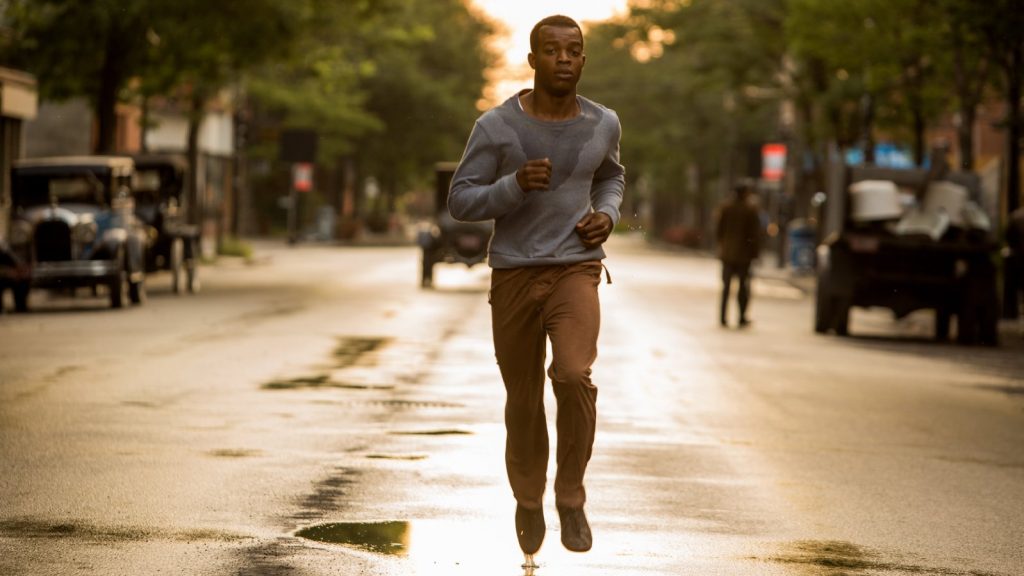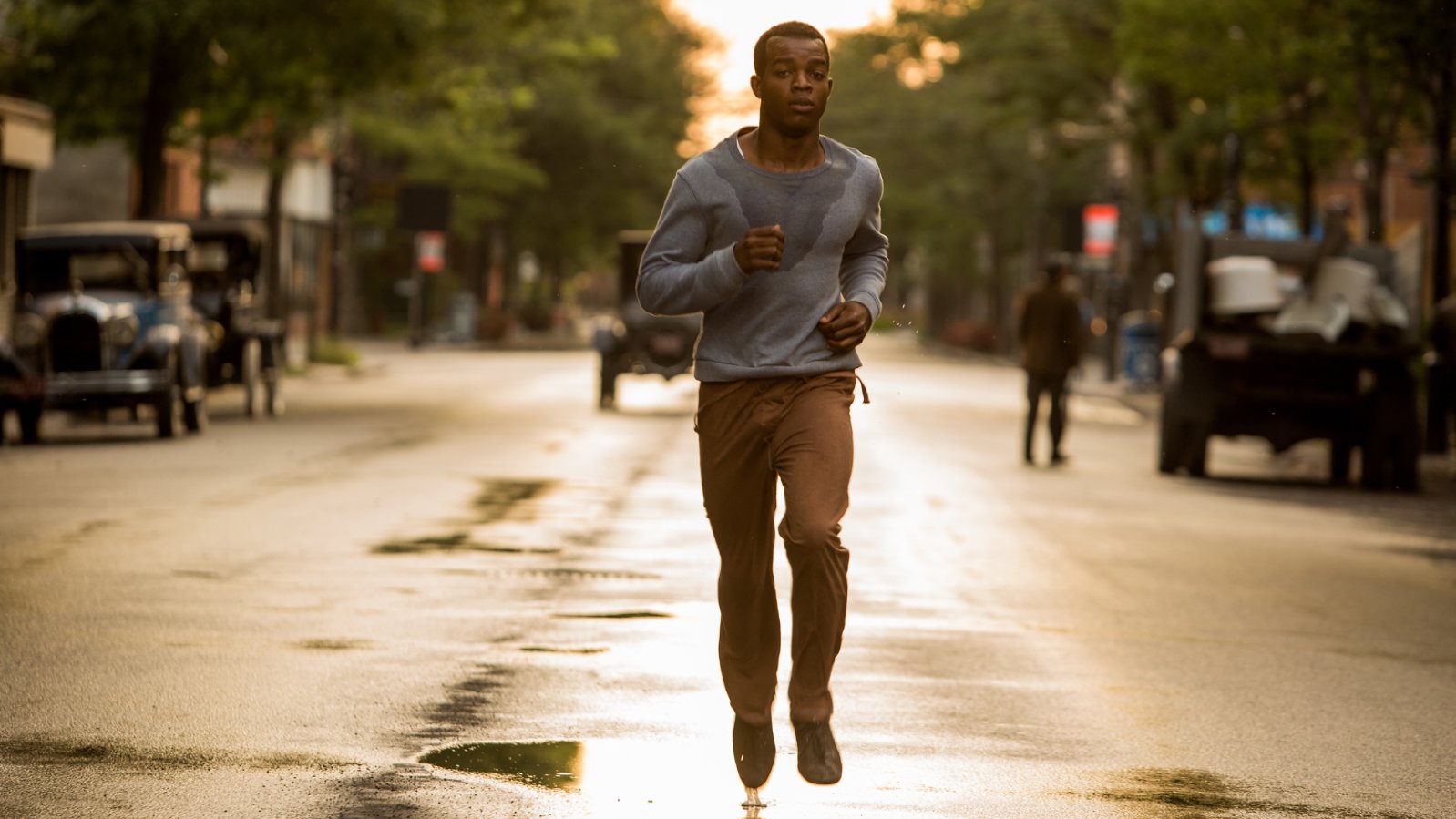Some stories should have no expiration date. Such stories, often true, are important because they compel us to reconsider societal truths. These stories serve as reminders, as affirmations of justice, triumph, and the rights of all men and women, and the battles which were waged to secure them. Stephen Hopkins’ new film, Race, is one of these stories. Starring Stephan James in a breakout role as Jesse Owens, the two-hour biopic catalogues the star athlete’s preparation for and performance in the 1936 Berlin Olympic Games; it notably includes a surprising, serious role for SNL-alumnus Jason Sudeikis as Owens’ coach Larry Snyder. In some ways, Race is an over-indulgent, at times numbingly obvious sports flick. But beyond its preference for motivational speeches and triumphant music, the film is highly important, by the sheer virtue of its place on the screen; it champions a name that deserves a seat in the pantheon of American heroes.

IMDB
Most Americans have heard about Owens’ prowess at the 1936 Games. Most know he stood on the highest podium a then-record four times as “The Star-Spangled Banner” rang throughout Hitler’s Olympiastadion. But when we can only remember a legend’s finest hour, it’s exceptionally easy to take that hour for granted. In Race, Hopkins starts at the beginning, in Cleveland. Owens’ family had moved to the city from Alabama, during the Great Migration of the early 20th century. Though the actors’ dress, the movie’s sets, and even the tint in the film’s old-time coloring can seem a bit fabricated or over-calculated at certain points, the film’s portrayal of Depression-era Cleveland is tremendous. Owens jogs Rocky-style past overturned waist-bins, rugged men in rowdy employment lines, and returns home to his laid-off father, portrayed by Andrew Moodie, who, with a proud jawline and tortured eyes, offers some of the best acting in the entire film.
It is from this setting that Owens leaves for school at Ohio State, where he meets Sudeikis’ Larry Snyder, an embattled, alcoholic track coach, once up for an Olympics of his own, now struggling to coach students to Big Ten victories. Sudeikis’ performance is unsatisfying at first, and his first half hour on screen is difficult to watch. As would be the case with any famous face primarily familiar to audiences for wisecracks, it’s a bit trying to accept his character’s haunted past, hardboiled coaching style, and several attempts at meaningful, “get to know my new black superstar” speeches. But somewhere along the way, between Owens — still an unknown commodity — shining at a Big Ten meet, and that same athlete threatening to quit if his coach can’t train him in Berlin, Sudeikis stops trying to act like Larry Snyder, and just decides to become Larry Snyder. He probes, he screams. Sudeikis throws back the alcohol instead of just pouring it. His character pays the track a nighttime visit, and as he howls into the night, there is clear agony and pain in the actor’s voice.
Another man who seemed to get comfortable about halfway through filming is Owens himself — Stephan James. For a man who only got the job after Star Wars: Force Awakens star John Boyega passed on the role, he certainly took full advantage. If there is one unifying force in this movie, one necessary element to breathe life into a story that occurred 80 years ago this upcoming summer, it’s James’ face. For as much time as James assuredly spent sculpting his chest and thighs to resemble one of the greatest athletes of the modern era, it was the work he spent mastering his countenance that ought to earn ultimate respect. There is pain, disbelief, surprise, hope, understanding, and, most importantly, resolve. James depicts Owens as humble and quiet, but under that surface is an Olympian who is at times explosively resilient and firm. Whether considering his obligation to boycott the games, (in support of the NAACP and in defiance of the Nazi regime), or simply hugging his coach after a victory, James offers Owen as best he can. It’s an accessible performance, and one that should win him many roles going forward.
It’s doubtful that too many will leave theaters lauding Race’s groundbreaking ingenuity in screenwriting or presentation. The film sticks to the script and only deviates to overdramatize accounts of the more ridiculous encounters Owens had in his life and in Berlin. It also stretches too long, spending perhaps too much time on the subplot of the Amateur Athletic Union’s potential boycott of the games. But by the same account, Race does have the ability to bring any audience member with half a heart to a state of goosebumps, if not waterworks. It is a sports movie. Sure, it’s not Rudy. But good luck holding back a cheer as Owens sticks it to all doubters under the sun.
The honest reason, though, that you might find your heart soar, pine, and shift every way in between, is because it’s not so difficult to imagine Jesse Owens’ world, thanks to the work of the cast and crew. And amidst an impending Oscars boycott over severely limited nomination of black actors, in a nation that struggles every day to heal the wounds of its torturous roots, there’s something deeply cathartic and deeply important about a movie, no matter how trite, that acknowledges its nation’s past, and does everything in its power to espouse a hero whose name should never be forgotten.






